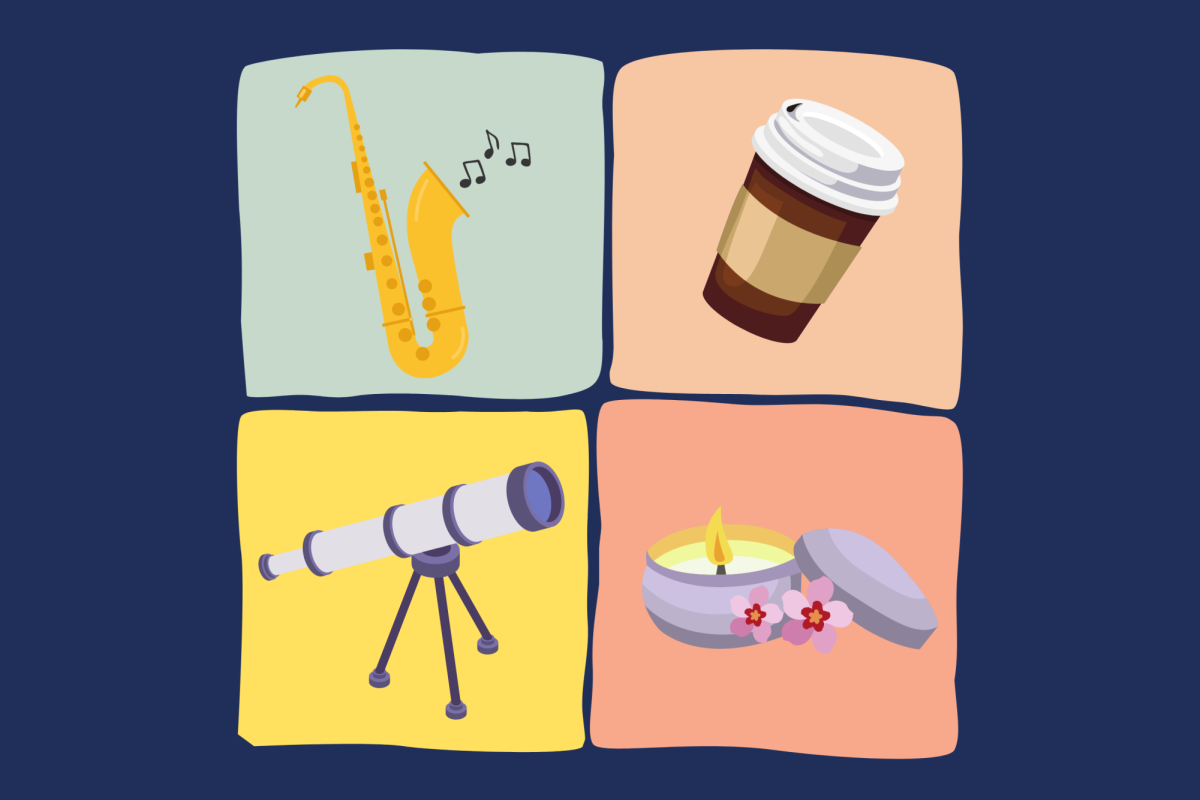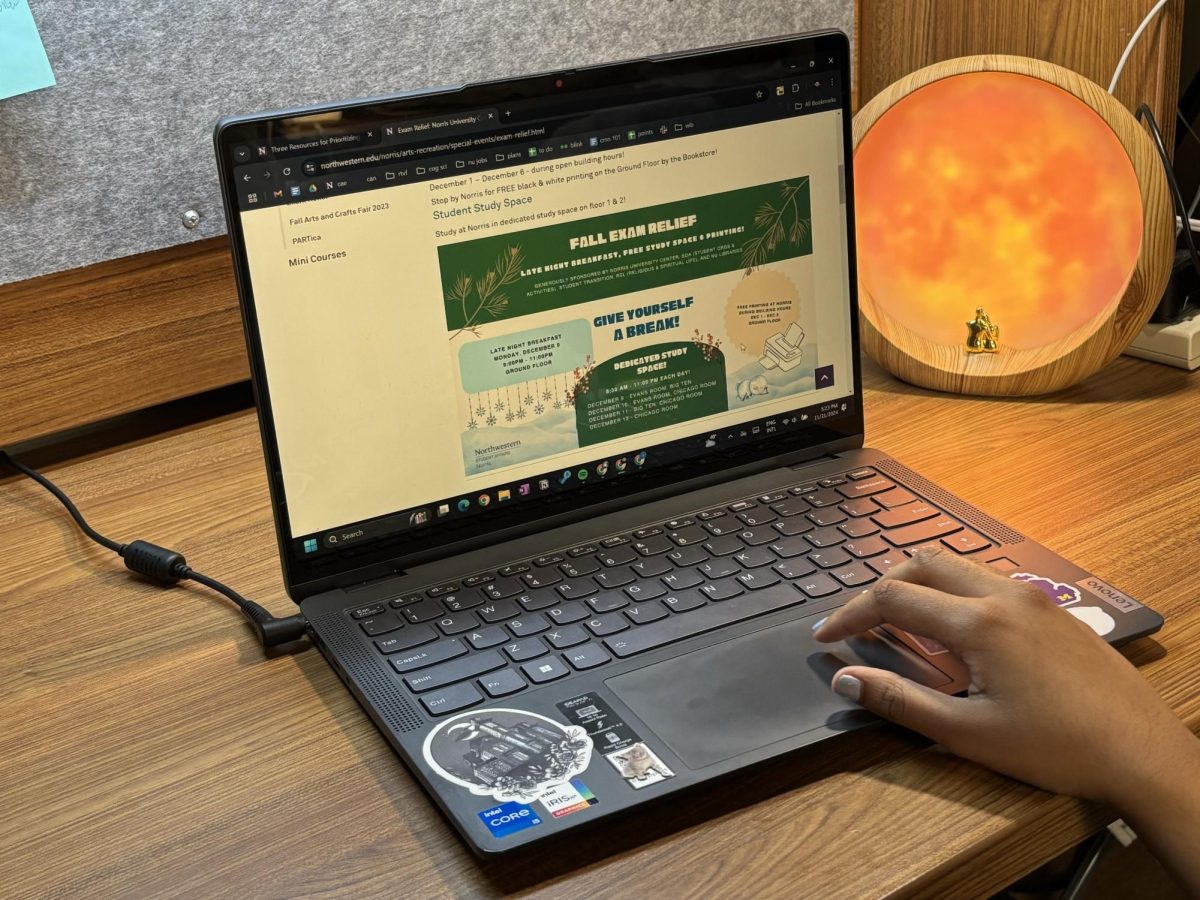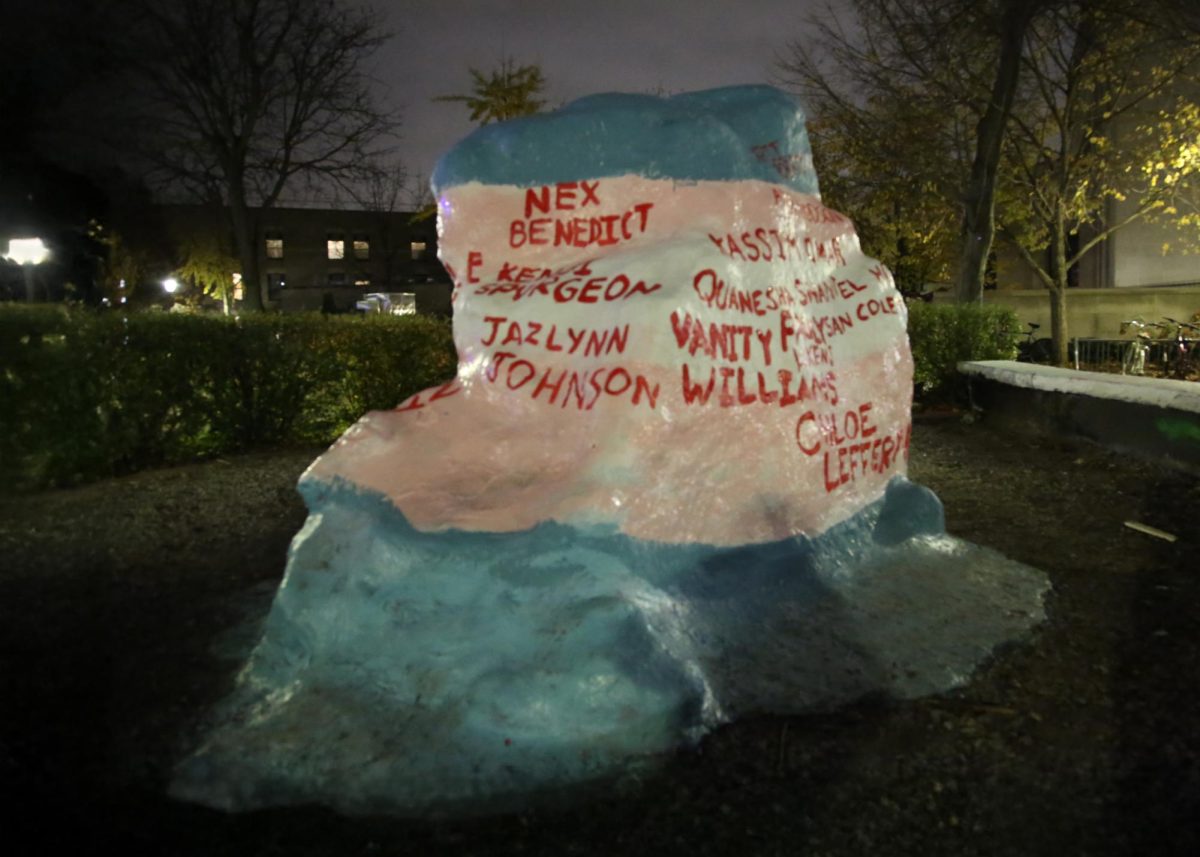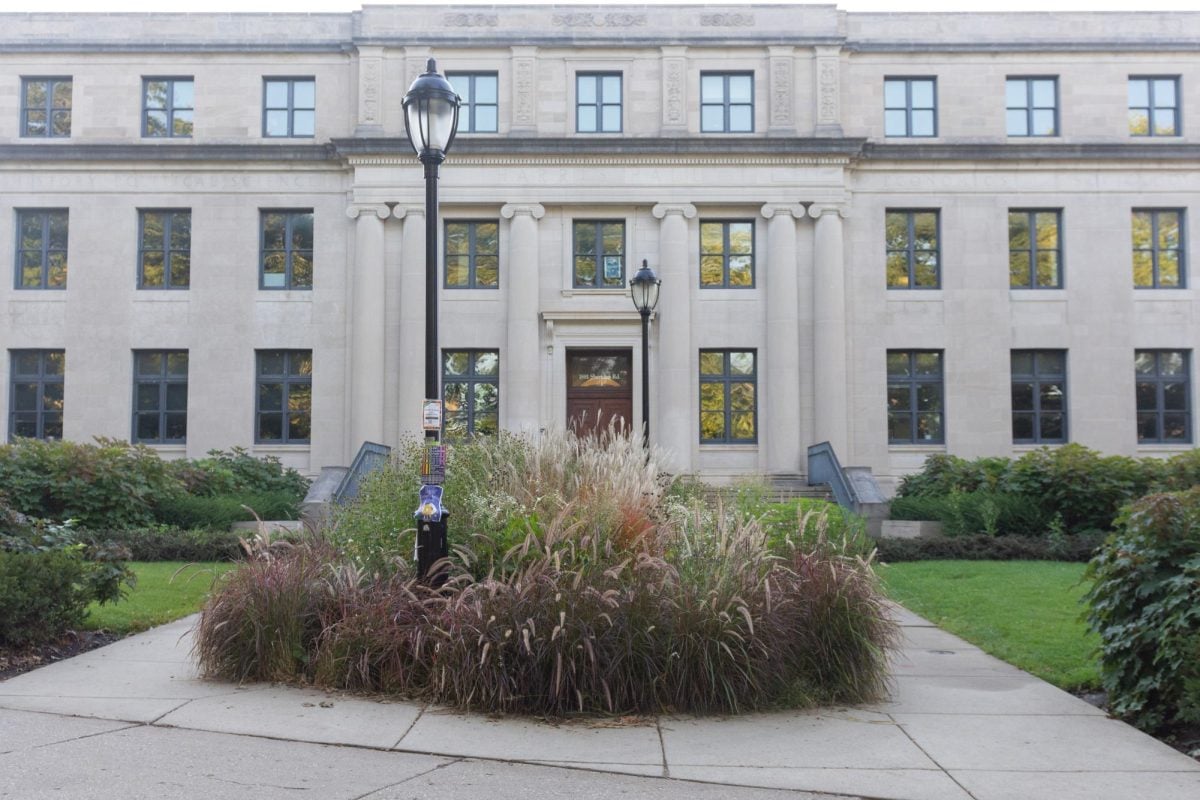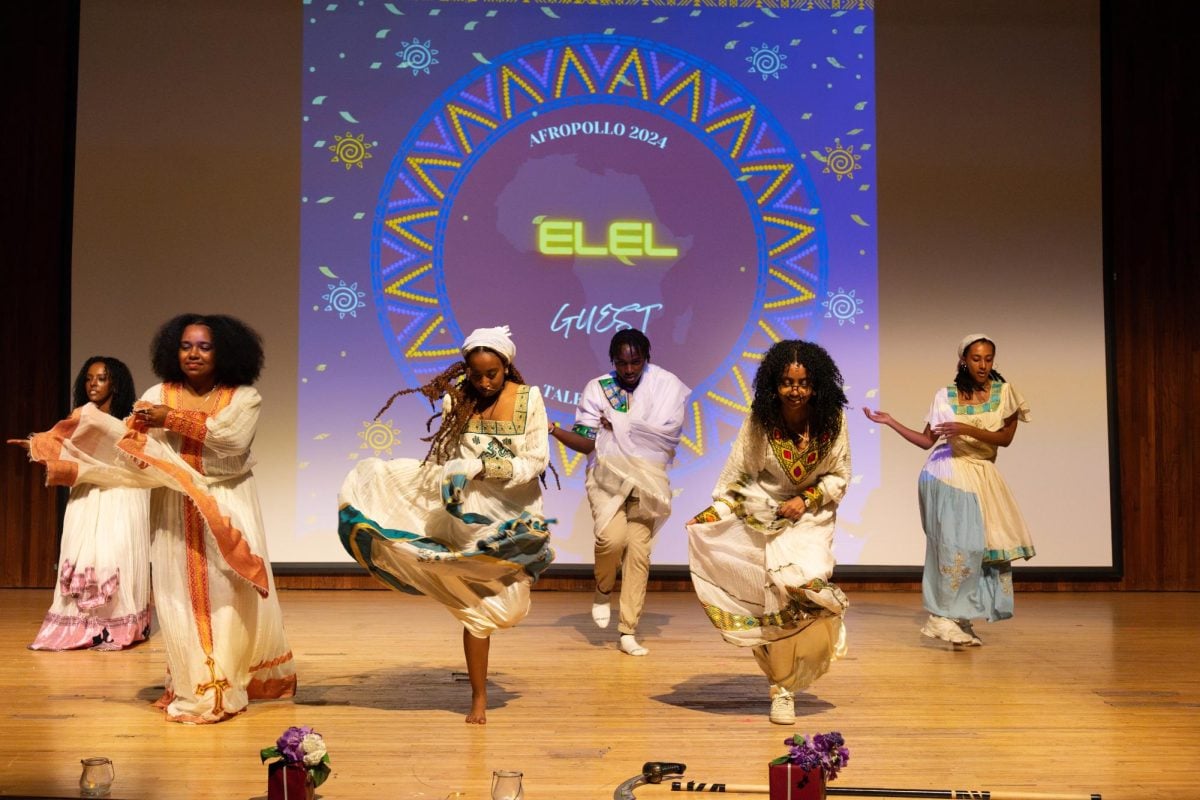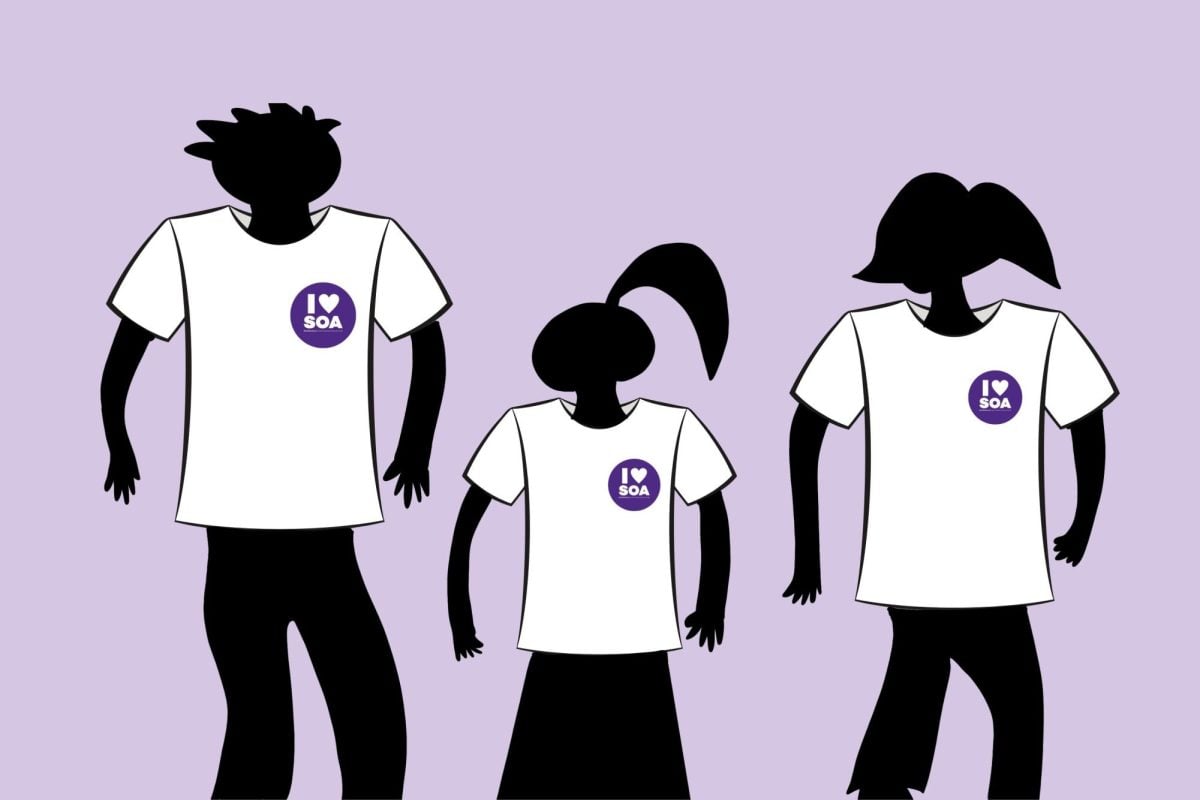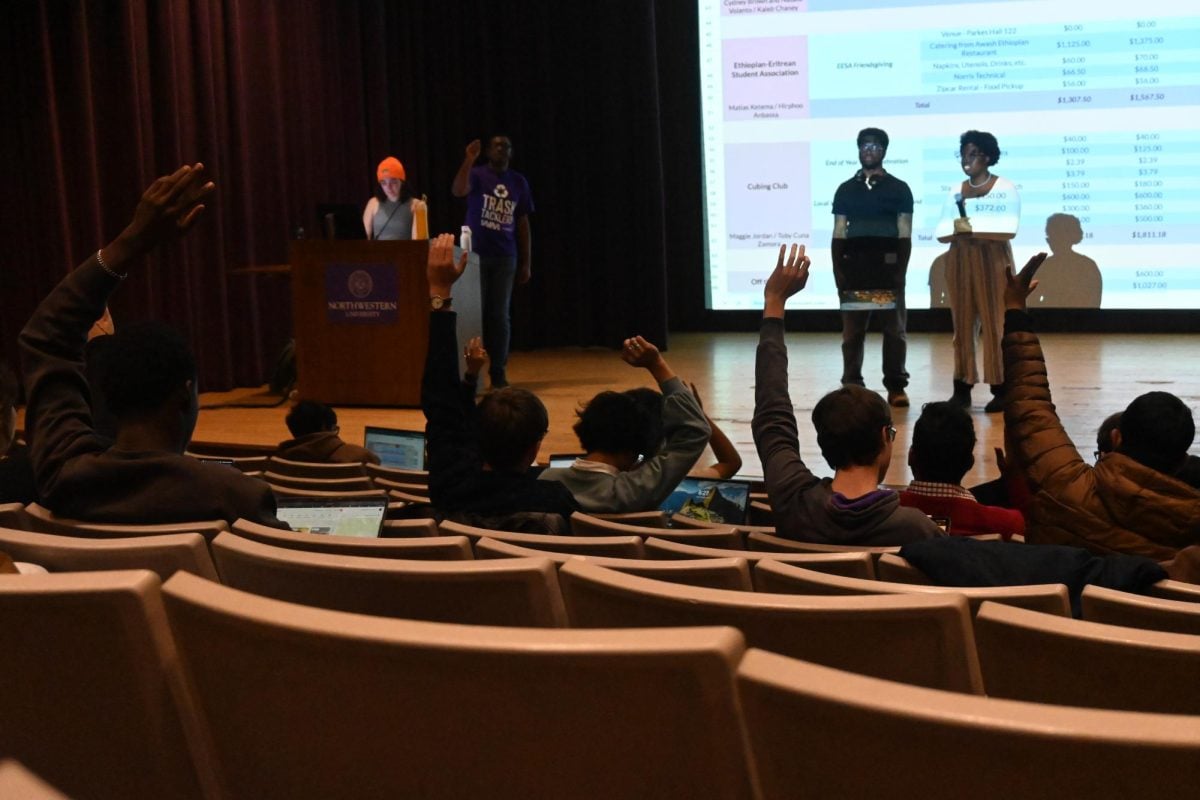“Bitch.”
That word was uttered multiple times by Bitch Media co-founder Andi Zeisler in a discussion aiming to engage feminist responses to mainstream media and pop culture Thursday night.
“The people who create media aren’t gods, goddesses or omniscient, all-knowing beings,” Zeisler said to an audience of about 20 students in the McCormick Tribune Center Forum. “They’re people with biases, bigotry and imperfections.”
Bitch Media is a nonprofit organization that publishes the quarterly magazine “Bitch: Feminist Response to Pop Culture.” Zeisler was brought to campus by the College Feminists as part of their Fall Speaker Series centered on feminism in the media.
“We wanted to talk about online presence and pop culture and how it’s used for and against feminism,” said College Feminists co-president Lauren Cichock, SESP seniors. “Students use online media a lot, so it’s important to teach people how to use it to forward a social goal.”
Zeisler said she was impressed by the existence of College Feminists at Northwestern.
“I speak at college campuses a lot and noticed a lot of groups are hesitant of calling themselves feminists, but you obviously don’t have that problem, which I think is great,” Zeisler said.
In Zeisler’s presentation, she addressed problems such as the creation of unrealistic standards of beauty and the objectification of women, which she said are usually introduced to girls at a young age.
“It’s … bad how young the girls who are absorbing the beauty culture are and that there’s no way to escape it,” Zeisler said.
Zeisler also discussed the inevitability of being exposed to the ideas presented by the media.
“It’s become increasingly clear that you can’t just escape pop culture by closing a book or changing the channel because we live in an increasingly mediated world,” Zeisler said.
However, Zeisler said technological advancements could also benefit activist movements by providing more opportunities for people to promote their ideas.
“The Internet has a really crucial power of making activism accessible to people who just may not have the option of speaking up in their daily life,” Zeisler said.
The feminist movement’s online presence is growing more prominent with social media, blogs and online publications.
“The cultural shift towards the Internet is interesting,” Weinberg senior Adriana Guzman said. “Most of the stuff that got me into feminist activism is stuff that I found online.”
Medill freshman Daisy Villegas said she found the information regarding the impact of the media on social stigmas to be influential.
“It completely reinforced my belief that female writers going into the career of journalism need to try to make a difference in how women are portrayed in the world of media,” Villegas said.
Although Zeisler spent most of the presentation criticizing the media, she also stated that it has the potential to benefit society.
“I love pop culture, and I know it shaped who I am as a person,” Zeisler said. “But it’s possible to love something and want it to be better at the same time.”
Email: [email protected]
Twitter: @LanNguyen_NU








